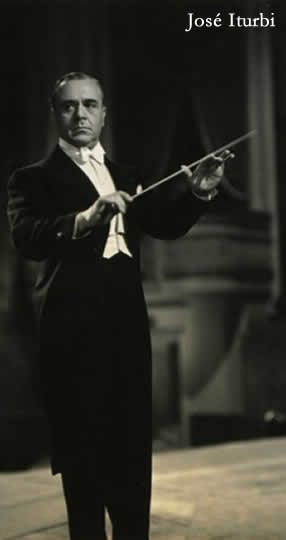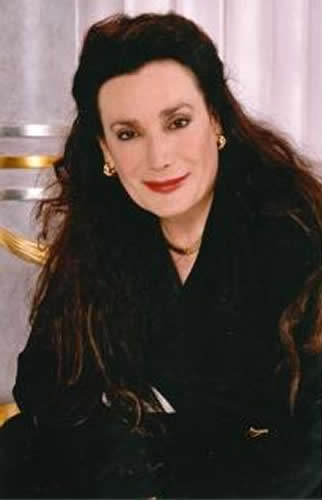 The Hollywood Museum is a labor of love for Founder and President, Donelle Dadigan. Dadigan has documented, preserved and now exhibits the largest collection ever assembled of authentic costumes and personal effects of hundreds of motion picture and television studios, as well as the stars themselves including Marilyn Monroe, Russell Crowe, Elvis Presley, Lucille Ball, Johnny Depp, Angelina Jolie, Brad Pitt, Anthony Hopkin, and Michael Jackson.
The Hollywood Museum is a labor of love for Founder and President, Donelle Dadigan. Dadigan has documented, preserved and now exhibits the largest collection ever assembled of authentic costumes and personal effects of hundreds of motion picture and television studios, as well as the stars themselves including Marilyn Monroe, Russell Crowe, Elvis Presley, Lucille Ball, Johnny Depp, Angelina Jolie, Brad Pitt, Anthony Hopkin, and Michael Jackson.
Today, Dadigan is the chairperson of the Hollywood Historic Trust which controls the sidewalks where the ‘Walk of Fame’ stars are located. She took over this duty from the late Johnny Grant, the honorary mayor of Hollywood, who left the museum his vast personal collection of memorabilia that he acquired for over half a century.
Inspired by her god-father, famed conductor and pianist, José Iturbi, Donelle is also the Founder and President of the José Iturbi Foundation, which hosts the world’s largest classical music competition. Created together with Marion Seabury, Iturbi’s companion, the José Iturbi Foundation is dedicated to sharing and popularizing the wonders of classical arts and music with the world.
Bijan Tehrani: Please tell me a little about the foundation and the history of it?
Donelle Dadigan: My godfather is a concert piano great—he is world renowned; he was also a conductor and was one of the most recognized and popular musicians of the 20th century, and his name was Jose Iturbi. He held concerts throughout the world and his goal throughout his lifetime was to bring classical music all over the world and allow it to transcend to all new and upcoming generations. Without appreciation to the next generation, he felt that classical music would become less and less enjoyed because people did not know much about it, did not realize what it was, didn’t think it was accessible, or felt that it was not easy to understand. So his goal was to popularize classical music and be able to find the next generation of talent to continue performing classical music.
BT: How much has your experience as a musician, encouraged you to start the foundation?
DD: I am a classical pianist. I have studied and performed in numerous conservatories and Universities around the world, but my relationship with my godfather transcended through so much more than only playing piano, and so my godfather took over my tutelage when my father passed away and I spent many afternoons and evenings a week with my godfather. I was very fortunate because we lived three blocks away from each other and it was very easy to a be able to go to my godfathers home, and he really taught me fantastic lessons about life in general. So my godmother, Marion Seabury—a professional singer in her own right, and I started this foundation after my godfather passed away. She was president of the foundation during her lifetime and she asked me to follow in her footsteps, and that is exactly what I am doing. The concept is that she wanted to honor my godfather for what he had done. He had tremendous passion, not just for classical music, but he also wanted to share classical music with the public at-large, and we wanted to keep his legacy alive. We realized that in order to do this, we had to do it in a way where we could popularize classical music, and our statement became “We popularize classical music, one note at a time.” So we did it in a way where we knew that my godfather would enjoy the calm ability to present the power of classical music. We knew that he liked to provide opportunities for the public at large to hear the greatest and most recognizable popular classical musicians, and he always felt that a healthy dose of competition was good for everybody, so we alternate with these three vehicles in helping popularize classical music and bringing new challenges to the forefront, and of course presenting the worlds greatest musicians in concert for the public to see. This way, I feel we have helped keep my godfather’s name out there and through these three wonderful categories and opportunities, the public would want to know who Jose Iturbi was. Our grandparents knew exactly who Jose Iturbi was, and some of our parents knew who Jose Iturbi was; its the young generation and the generations to come who we want to help understand what classical music is about and that you should not be afraid of it. You should embrace it because it is the root of many popular songs and melodies that we hear today; many of them can be found in classical music. As a result, my godfather loved to accompany Frank Sinatra and Judy Garland. He liked to play a little bit of Jazz and Boogie Woogie, which was very popular in the 40’s and 60’s, and he enjoyed crossing over from classical music to popular music. 
BT: I think that this is a great approach and it will help the younger generation understand classical music. I teach filmmaking myself and I know how important it is for my students to understand classical music. Would you say that you are specifically targeting the younger generation and younger musicians that are involved with classical music?
DD: What we like to do is present a program called “The Talent of Tomorrow”. It is an opportunity for teachers to bring their students to the aforementioned performances. There is usually conversation and discussion beforehand and it is a very intimate setting; a couple hundred people at the most. In these types of performances the goal is for young people to realize that their peers are performing classical music, and in-fact classical music is probably more of what we are hearing today and it is fun to make that connection so that young people recognize it. Jose Iturbi appeared in those musical displays and felt that it was the best way to reach the younger generation that went to movies all the time. He felt that when he was in a film, one of his requirements was that he always played himself; he was always a good person and not a bad character, and he always got to play piano and sometimes conduct an orchestra. When he played piano, he played classical music and at the same time he always had some fun comments and brought them into the script. From the classical music, sometimes he would transition to Jazz or popular music, and then all of a sudden return back to classical music. It became much more comfortable for the audience to listen to, and they got little doses of both classical and popular, current-day music and they really appreciated it. You know Iturbi, he took a big chance doing this. He became one of the world’s greatest pianists, and all of his performances were sold out all over the world—sold out to the point that they would put 100-200 extra chairs on the stage behind the piano so that they could accommodate extra people still coming and trying to get in to hear him. He already had a fabulous and exciting career as a classical pianist and conductor, but he just wanted to make sure that the future generations would continue to appreciate it as they appreciated Jose Iturbi during his time. That is what we are tying to do: we are tying to make sure that the younger generation appreciates it.
BT: Please tell me a little bit about the event on August 19th at The Hollywood Bowl?
DD: We are very thrilled about this concert on August 19th, with Dudamel and Domingo: the world’s greatest tenor. Also, my godfather was Spanish, so I’m pleased and excited with the historical connection because Dudamel is also of Latin descent. Dudamel is a great conductor and he wants to bring young music lovers to hear classical music, to be able to perform classical music, and to be able to share music with these two Latin greats performing on Sunday night; it seems so wonderful. My Godmother, Marion Seabury, was a soprano and I will tell you it would have made her very happy to see all of this: having the world’s greatest singer perform here is great and there was something for each of them, my godmother and my godfather in this concert.
BT: What you are doing shows that art has no boundaries and does not belong to a certain culture or certain country.
DD: I can’t agree with you more, you are one-thousand percent correct! In terms of removing boundaries, we will be providing a free concert outside of the Hollywood Bowl near the ticketing area, open to the public. We will be showcasing up and coming talent, with two sopranos, a tenor and a baritone, and we are using modern technology with a keyboardist accompanying them! We are trying to bring this experience out in the open so that, as the public comes to see the world’s greatest tenor, they are going to have the wonderful experience of hearing tomorrow’s wonderful music talent performing right when hand their tickets in, right before they go through the turnstile, in the plaza area where people have their dinner before they go inside the bowl.
BT: You are going to be awarding some cash prizes that will help future classical musicians, please tell us about that.
DD: We hold a music competition where we award artists in the categories of classical piano or classical voice. We have prizes that include $50,000 cash to the best pianist and the best singer, $25,000 for 2nd second best, $15,000 for third best, and numerous other prizes. There is the President’s choice, the people’s choice, there is the Best American Performance, Best Performance of a Spanish Composer, and many more. We try to honor the roots of the foundation. We have a stellar jury, which has included Marilyn Horn and Daniel Pollack, amongst other greats, and of course it is not just who our esteemed world class jury who selects winners, but the public at large at the finals selects and determines who wins the peoples choice awards. So, there is a cash prize attached to that also. People recognize that when the Jose Iturbi Foundation does the competition, it’s not just what professionals admire, but what the audience and the people in general like. That is where the popularity of classical music hopes to be continued; it is the public at large that picks their favorites.

